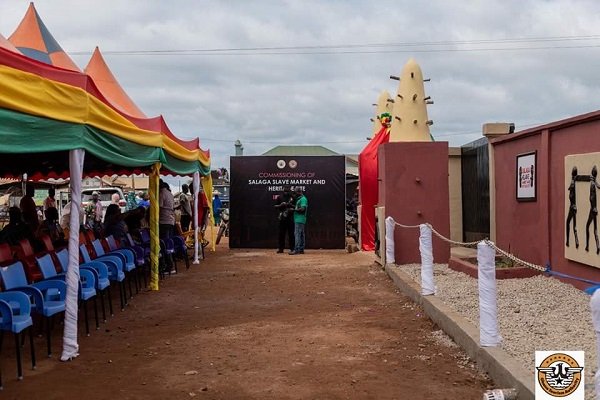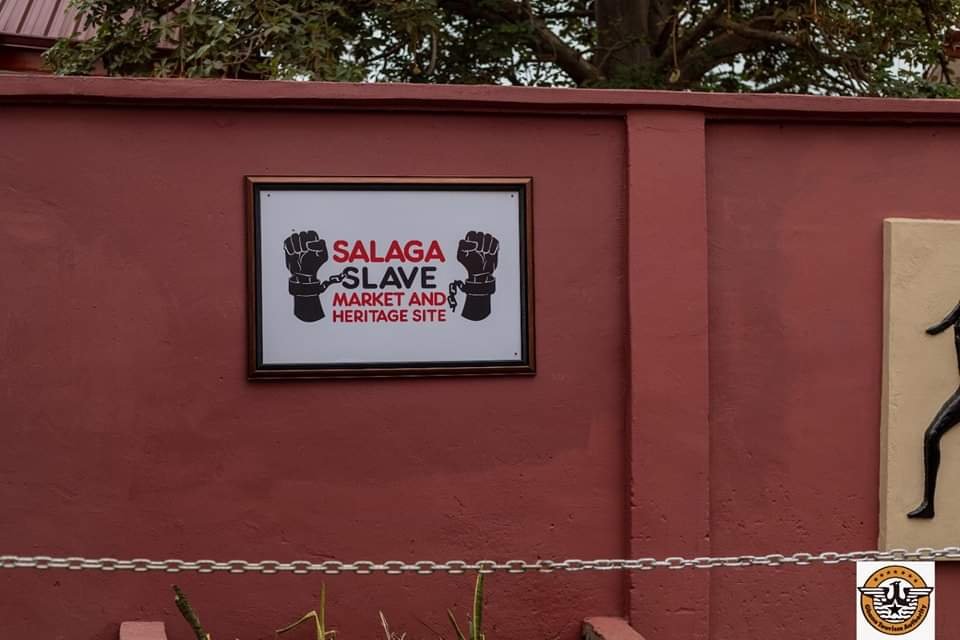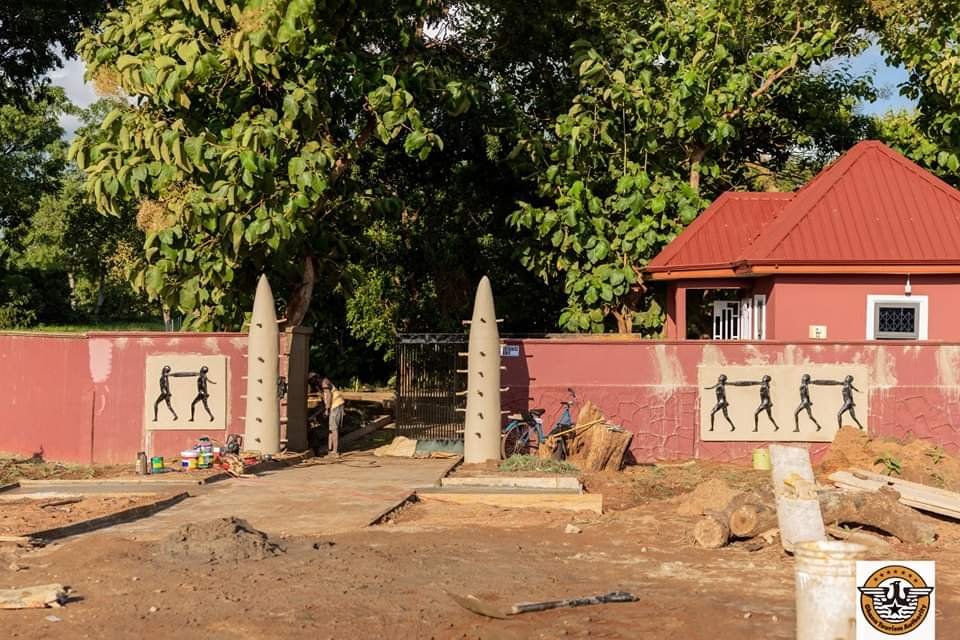Hot!
Salaga Slave Market Commissioned for 2024 Emancipation Day Celebration

Monday, July 22, marked the official commissioning and ribbon cutting of the Salaga Slave Market and Heritage Site.
This monumental event brought together government officials, community leaders, and locals to celebrate the reopening of a site that plays a crucial role in the history of the transatlantic slave trade.




Salaga was a significant point on the slave route where captured enslaved Africans were sold and later transported to the coast and trafficked to the Americas.
The Minister for Tourism, Arts, and Culture, Andrew Egyapa Mercer, highlighted the importance of this site, stating, “The commissioning of the Salaga Slave Market and Heritage Site is more than a mere remembrance of the past; it is an acknowledgment of the role that slavery played in shaping our world today.”
He made these remarks during the commissioning ceremony held on July 22, 2024, in Salaga.
The Salaga Slave Market dates back to the 18th century and served as an essential hub during the Trans-Atlantic Slave Trade era. It also functioned as an outpost for the movement of slaves along the trans-Saharan routes.
Visiting this heritage site offers a profound opportunity to understand and honour this significant part of African history.
It is a place where the stories of those who were captured and enslaved come to life, offering visitors a chance to reflect on the past and its impact on the present.
The reopening of the Salaga Slave Market & Heritage Site aligns with the “Promote Pan-African Heritage & Innovation” pillar of the Beyond the Return initiative.
This initiative seeks to highlight Ghana’s rich heritage, history, pan-Africanism and also to promote tourism in other regions of Ghana.
“Let us seize this occasion to promote tourism in the Savannah Region and across Ghana,” said Hon. Minister Mercer.
He also said that highlighting unique heritage sites like the Salaga Slave Market and Slave Wells builds on the cross-cultural understanding between different communities, both locally and internationally.
The Minister extended heartfelt appreciation to His Royal Highness, the Kpembe Wura, the District Chief Executive, and all stakeholders involved in the renovation and commissioning of this project.
Their collective efforts have ensured that the Salaga Slave Market stands as a testament to history, ready to educate and inspire future generations.
The Salaga Slave Market & Heritage Site offers a unique and enriching experience, allowing visitors to connect with the past.
Hot!
Many SOEs have been used as mere instruments for personal wealth accumulation –Pres.Mahama

President John Dramani Mahama has expressed concern over the misuse of State-Owned Enterprises (SOEs) for personal financial gain by individuals in leadership positions.
Speaking during a meeting with Chief Executives of specified entities under the State Interest and Governance Authority (SIGA) on Thursday, March 13, the President directly attributed the dire state of SOEs to their leadership, accusing chief executives, management teams, and governing boards of prioritising personal enrichment over organisational efficiency.
He pointed to bloated budgets, unjustified allowances, and unnecessary expenditures as factors draining public funds while SOEs continue to rely on government bailouts.
“Many SOEs have been used as mere instruments for personal wealth accumulation by appointees. The chief executives, management, and boards of these enterprises are responsible for this situation. Some SOEs have become perennial loss-makers, draining public funds with bloated budgets, unjustified allowances, and unnecessary expenditures while relying on government bailouts as if entitled to them. Many of these entities are at their lowest point in the entire history of the Fourth Republic,” he said.
President Mahama further noted that many SOEs have been plagued by inefficiencies, corruption, and mismanagement, leading to consistent financial losses. He cited the 2023 State Ownership Report by the State Interests and Governance Authority (SIGA), which highlighted systemic inefficiencies and wasteful expenditures within these entities.
He therefore reaffirmed his commitment to reforming under-performing SOEs and ensuring they serve national interests.
He warned that loss-making SOEs will no longer be tolerated and will either be merged, privatised, or closed.
“I will assess you based on your performance. If you do not align with the pace of the reset agenda, you may be asked to step aside. If that adds to the horror movie, so be it,” he added.
Source: Myjoyonline.com
Hot!
Prophet Courage Heavens set to launch ‘Predestination’ book on March 23

Prophet Courage A. Heavens is set to launch the much-awaited book titled ‘Predestination’ on Sunday, March 23, 2025 at 5:00PM.
The launch, which is expected to impact lives, will take place at Crossgates Ministries, Flattop, off N1 Highway, opposite Angel Hauz.
The book is aimed at addressing the way people struggle to understand how free will and destiny align.
It is also aimed at providing clarity on God’s sovereignty and one’s place in His divine plan.
The various chapters of the book address various issues through scriptures and personal stories.
Committed to impacting society, part of the proceeds from the book will go into Courage Heavens Education Legacy (CHEL), an educational foundation transforming lives.

CHEL is dedicated to providing financial support and mentorship to brilliant but needy students, ensuring they have access to quality education and opportunities for a better future.
Prophet Courage Heavens is a prolific writer and previously authored Eli Eli Lama Sabachthani, a powerful book that encourages unwavering faith in times of trials.
In addition, he has written seven more prophetic and life-changing books that are yet to be published.
He is dedicated to raising the next generation for impactful ministry. As the leader of Crossgates Ministries, he nurtures believers in faith and purpose.







